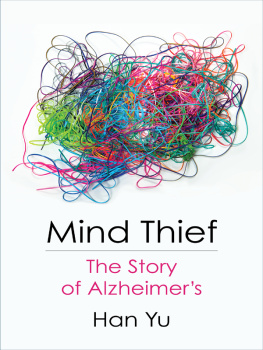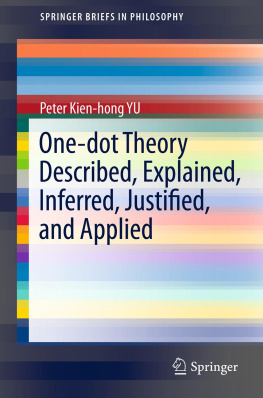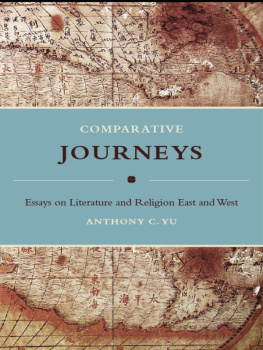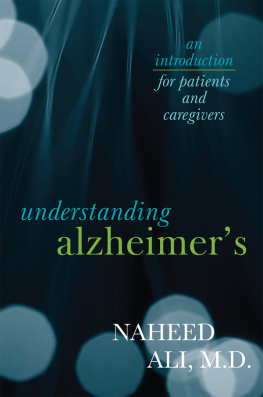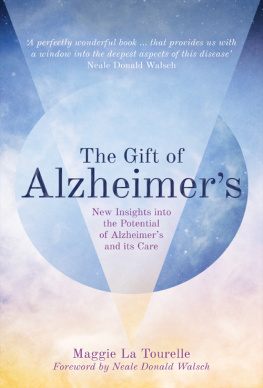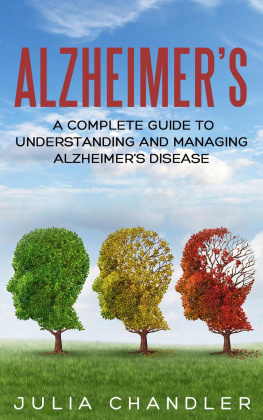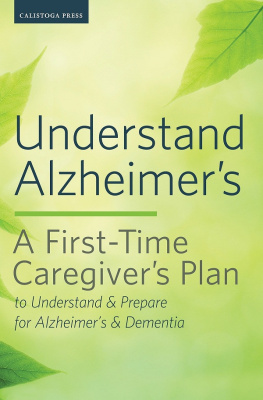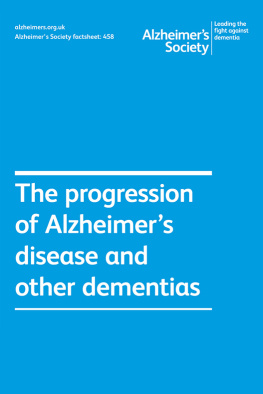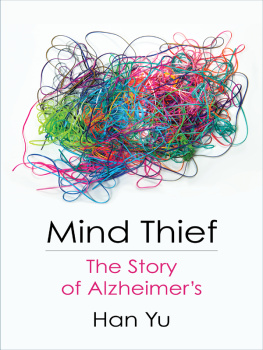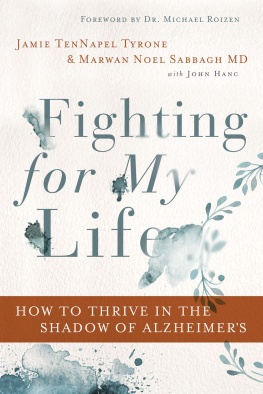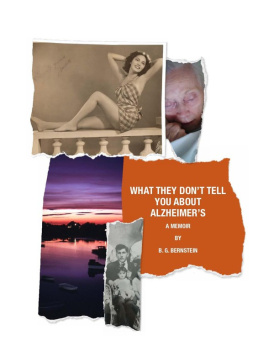Table of Contents
Mind Thief
Mind Thief
The Story of Alzheimers
Han Yu
Columbia University Press
New York
Columbia University Press
Publishers Since 1893
New YorkChichester, West Sussex
cup.columbia.edu
Copyright 2021 Han Yu
All rights reserved
E-ISBN 978-0-231-55276-9
Library of Congress Cataloging-in-Publication Data
Names: Yu, Han, 1980 author.
Title: Mind thief : the story of Alzheimers / Han Yu.
Description: New York : Columbia University Press, [2021] |
Includes bibliographical references and index.
Identifiers: LCCN 2020019015 (print) | LCCN 2020019016 (ebook) |
ISBN 9780231198707 (hardback) | ISBN 9780231552769 (ebook)
Subjects: LCSH: Alzheimers disease. | Alzheimers diseaseHistory.
Classification: LCC RC523 .Y8 2021 (print) | LCC RC523 (ebook) |
DDC 616.8/311dc23
LC record available at https://lccn.loc.gov/2020019015
LC ebook record available at https://lccn.loc.gov/2020019016
A Columbia University Press E-book.
CUP would be pleased to hear about your reading experience with this e-book at .
Printed in the United States of America
Cover design: Milenda Nan Ok Lee
Cover art: Spiderplay iStock
Contents
E very 65 seconds in the United States, a person develops Alzheimers. Every three seconds in the world, a person develops dementia, mostly due to Alzheimers.
In 2019, 5.8 million Americans lived with Alzheimers. By 2050, 13.8 million will. By the same year, 131.5 million people worldwide will be living with dementia.
In the United States, death from Alzheimers increased more than 120 percent over the last twenty years. It is now the sixth-leading cause of death. Worldwide, Alzheimers and other dementias are the fifth-leading cause of death.
In 2019, it cost $350,000 to care for one American with dementia. That year, the total cost of Alzheimers and other dementias was $290 billion in the United States and over $1 trillion in the world.
Still higher is the human cost of Alzheimersthe loss of friends and families, memories and purposes, lives and souls.
At present, there is no effective prevention or treatment, let alone cure, for Alzheimers.
As a species, we desperately need to do something.
I thank my agent Kate Johnson at MacKenzie Wolf for her steadfast support, superior work ethic, keen eyes, and literary smartness.
The very same goes to my editor Miranda Martin at Columbia University Press.
These two brilliant women recognize the value of lost histories and silenced voices. They appreciate the humanistic in science and the emotional in facts. They look beyond the artificial division between experts and laypeople. They advocate for non-Western, non-masculine authors. Working with them has been an absolute pleasure.
Thanks also go to my colleague Deborah Murray, who introduced me to the charming Meadowlark retirement community; my colleague Elizabeth Dodd, who gave me invaluable insight in conceiving a big picture for the book; and my colleague Katherine Karlin, who patiently read proposal and chapter drafts, encouraged, guided, and helped in every way she could. I am very lucky to have you all in my life.
Thank you, too, to the very capable editorial and production team at Columbia University Press and its partner who saw this book through various stages of production: Brian Smith for tying up various loose ends, Ben Kolstad and Sue McClung for copyediting, Leslie Kriesel for coordinating, and other behind-the-scene folks. Your professionalism inspires me.
And, of course, thank you to my husband, who puts up with my long hours bound to the desk, who never hesitates to challenge me, and who is prouder of me than I am of myself.
I n 1864, a sprawling structure was rising on the outskirts of Frankfurt, Germany. Emulating the medieval gothic style, the structure had imposing towers, an arched entryway, and enormous windows. It was by all architectural accounts an impressive building. Yet, as the home of the Institution for the Mentally Ill and Epileptics, it felt more depressive than impressive under the gloomy Frankfurt sky.

